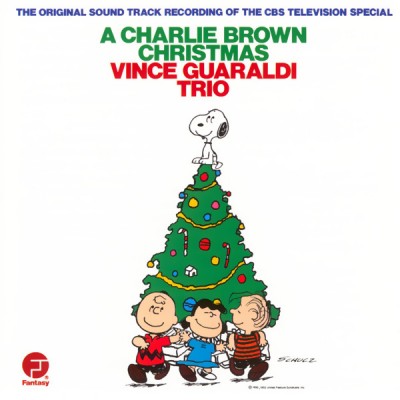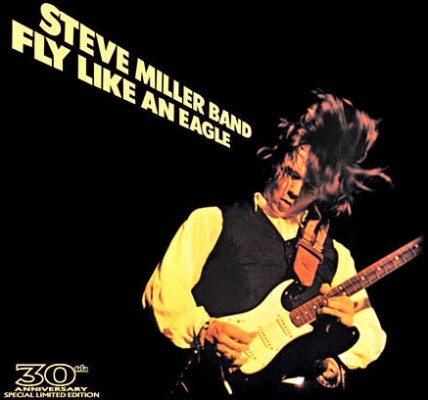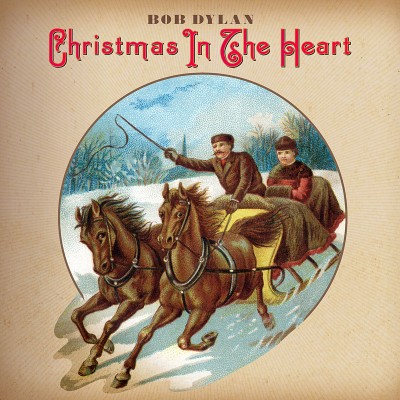IN THE FACE OF all of the challenges facing the modern music industry – the vexing matter of subscription services, a new generation’s extremely flexible attitude toward intellectual property, this Macklemore person – an old problem continues to assert itself, year after year. I am speaking, of course, of the holiday-themed album. Each year, our radios and senses are ambushed by a fresh assault on some of the least essential and most persistent songs ever created. Among this year’s mistletoe-armed soldiers of fortune: Susan Boyle, Mary J. Blige, and Kelly Clarkson. As an utterly unabashed fan of “Since U Been Gone” – though not, admittedly, super crazy about the way it’s spelled – and with major respect accorded her excellent live take on “Lose Yourself,” I’m not excited about Ms. C’s sojourn in Santa’s Chateau.
As fine a singer as she is, can anyone honestly say that they yearn to hear Kelly Clarkson’s interpretation of “Run Run Rudolph”? I don’t hate the song, I don’t hate Christmas, and I am loath to adopt the position of the crank. In fact, before I heard it for the twelve-thousandth time, I’m pretty sure I liked it well enough. But, look, “Run Run Rudolph” is a fun little rocker about a reindeer. Countless covers have been attempted without diverging from Chuck Berry’s original recipe, because there really isn’t anywhere else to go. The tune doesn’t seem to offer itself up to variation and the joke, clever as it may be, is one-note. So now it’s boring. The elastic is sprung; these sweatpants have nothing left to give, my friends.
But if a totally decent song like “Run Run Rudolph” can be worn out, what about a truly great song? I’m not strictly talking about Christmas music now, although the relentless cycling through of a relatively short roster of tunes during the holiday season makes it a logical jump point. I’m also thinking about much covered tracks like “Let’s Get it On,” “Amazing Grace,” and “Hallelujah,” which strike me as invulnerable against even the worst interpretations.
My tentative theory, which I hope you will either be able to refute or ratify, is that the true test of a classic song is that it can be played endlessly on the radio, left to burn in the hellfire of American Idol, and still capture your ear. Classic rock radio never quits with “Sweet Home Alabama,” and I never tire of hearing it. That guitar riff is so sassy and so deep – how could you ever deny yourself? A track like “American Woman,” on the other hand, which gets a similar number of spins, has been driving on rims for a long time. Whatever plausibility Burton Cummings’s pissing and moaning about the devil woman may once have held, the jig was up long ago. My feeling: dude wishes she was hangin’ around his door.
The former is an immortal track, the latter is not.
James Jackson Toth, you love Christmas as much as anyone I know and are pretty much the embodiment of the season: bearded, jolly, generous with gifts for anyone who is well-behaved. Tell me this: Have you ever gone caroling? Is it fun? Can overplay, or a particularly egregious reading, ruin a classic song?
[James:]
I appreciate the contention that the test of a great song is whether or not it can transcend its own ubiquity, or, as I like to call it, “classic rock radio blitzkrieg.” Though I have learned over time that classic rock chestnuts vary slightly from region to region—my Alabama-born wife does not recall being inundated with either “Movin’ Out (Anthony’s Song)” or “Glory Days,” while I was not well acquainted with “Flirtin’ With Disaster” nor “Hold On Loosely” until moving to Tennessee—I find the standard playlist of most oldies rock stations woefully unimaginative, and believe they should be avoided at all costs by anyone who still enjoys and values music as an artform.
That said, there are songs that I do not hate despite their place in this canon of monotony. These include “Ramblin’ Man,” “Funk #49,” “Reelin’ In The Years,” “Rocket Man,” “Mrs. Robinson,” “Born In The USA,” “Sympathy For The Devil,” “Don’t Fear The Reaper,” “Sultans Of Swing,” “Money,” and, yes, “Movin’ Out (Anthony’s Song).” I am fairly certain I have heard each of these songs more than 500 times, and yet, when they are broadcast, I am never moved to change the station; in some cases, I will sing along. However, when I hear the unmistakable opening strains of “Sweet Home Alabama,” “Back In Black,” or “Stairway To Heaven,” I cannot turn the dial to my local NPR affiliate, or to static, quickly enough. To be fair, I like AC/DC, Skynyrd, and Zeppelin; God help me, I even like those songs. So why can’t I listen to them? Why do I still abide—okay, you got me, enjoy—“Radar Love” and not “Born To Be Wild?” Because “Radar Love” is objectively good, and “Born To Be Wild” is objectively bad? Is it that some of us gravitate to songs with lyrics that transcend the usual old-timey themes of Mordor and ephebophilia? These are important questions whose answers may require the application of the scientific method. In the meantime, I’d like to defer final judgment and volley these questions to my colleagues Tim and Elizabeth.
As for Christmas albums, they are almost uniformly lousy and unnecessary, with the Vince Guaraldi Trio’s A Charlie Brown Christmas providing the lone exception that proves the rule; that one’s good all year round. I will also abide John Fahey’s A New Possibility if I am to be coerced into tree-trimming.
I, too, like Kelly Clarkson, but frankly, I’d sooner endure an entire box set of Young Jeezy hollering “Hava Nagila” through a bullhorn than listen to her sing “Run Run Rudolph” even one time. The fact is I do not enjoy a single contemporary Christmas song – not “Rockin’ Around the Christmas Tree,” not “Jingle Bell Rock” and certainly not the unendurable “Santa Baby” (how I loathe that song!). If this casts me as the Grinch, well, pass the Hoo Hash. I can hang with the hymns, I can hang with the jazz, but subject me to the Boss’s version of “Santa Claus Is Comin’ To Town,” and you just may be joining them chestnuts on that open fire before this Yuletide is through.
As to your question about caroling, I was once ordered to take part in such a thing, as part of an after school “religious instruction” program. A buddy and I were single-handedly responsible for the excursion being cut short on account of mischief; we “ruined it for everybody.” Hanging back from our more compliant peers, we devised new arrangements of the canticles that owed more to Napalm Death than Bing Crosby: “Hark!…the herald!!…ANGELSSIIIIIIIINNNNG!! jin-jin-jin-jin” went one particularly robust and blasphemous rendition. I was promised coal in my stocking that year.
[Timothy:]
How inspiring the comments of our colleagues! How amusing to witness their vibrant thrusting and tilting around these crucial issues of our collective social aesthetic (even as Owen’s once-peerless mind shows still further signs of a expeditious decline into incoherence. He cannot deprive himself even one time of “Sweet Home??” Worrying.)
But, fun things aside, it surprises me not at all that both Owen and James have managed to cleverly navigate their way around the elephant in the room – what I like to call “the nugget of the thing”– which is their obvious unresolved trauma at the hands of that great, ruthless assassin of Christmas mirth: “The Little Drummer Boy.” To a trained expert like myself (countless hundred hours of online work in psychology at ‘The University of Ypsilanti’ has accredited me with the official title of ‘Human Observer’) the evidence that they are actually upset about “The Little Drummer Boy” is flagrantly plain. They speak of repetitiveness, childhood memories, Golden Earring, The Reaper, all hinting at but never actually acknowledging the “pa-rum-pa-pum-pum” which is Holiday Music’s original sin. This instance of displaced transference is palpably, almost laughably obvious.
But these are clinical concerns – you don’t want science speak, you want answers. The answers are as follows:
1) No songs by Steppenwolf can be tolerated more than two times a month, although for those feeling the need to recklessly push the envelope, “Magic Carpet Ride” is the only option.
2) The most dangerous man alive is not Bashir Assad or Kim Jong Il or Richie Incognito. The most dangerous man alive is Stevie “Guitar” Miller, who in conjunction with his influential syndicate has persuaded nostalgic rock stations around the country to play his sinister raft of evergreen “hits” endlessly and without apparent remorse – songs that no sentient person actually likes. These abominations include “Flying Like The Eagle,” “I Want To Shake Your Peaches,” and “Abera-Cadabra.”
3) Modern historians are increasingly able to make a compelling case that most of the popular “Christmas Carols” of our time are not vestiges of an earlier age, but in fact the work of Stevie “Guitar” Miller and his longtime known associate “Boz Scaggs.” This is especially true of “We Wish You A Merry Christmas,” which the duo first debuted in Berkeley, California, in 1967, with the “figgy pudding” lyric first sang as “so bring us some heavy acid”.
So what is the way forward? How are we to maintain traditional music as a multi-generational tradition, while still throwing off the crushing “Guitar” Miller-Scaggs yoke? This is where I throw matters over to our resident, tenured Rockologist-In-Standing, Mrs. Elizabeth Ann Nelson. Go Elizabeth – and don’t disappoint!
[Elizabeth:]
I had always assumed that making a holiday album was more or less de rigueur for anyone with a record deal. Literally everyone from Linda Rondstadt to Kenny G to Columbia recording artist Robert “Bob Dylan” Zimmerman has a Christmas album in his or her oeuvre. I don’t know why this is the case; they were probably just moved beyond themselves by the holiday spirit or maybe there was some kind of “contractual obligation” in the mix. Why they didn’t go ahead and write a full-length’s worth of new material for these records is a puzzler; perhaps they’re lazy or maybe they just didn’t want to fuck with the hits. I do think it’s neat when popular artists write a contemporary holiday track, and there are some really good ones out there. Mostly I’m just happy if the record doesn’t include any version of “I Saw Mommy Kissing Santa Claus,” because that song is gross. Generally though, I like Christmas carols. I’ve Christmas caroled with my peers in high school and sat around the piano with my mother and father singing Christmas music (my older brother was hiding in his room playing video games – this was last year), so I don’t bristle too much at holiday music. And if it’s rendered by Kelly Clarkson or She and Him or anyone else for that matter, I’m probably not going to get too annoyed if it’s playing while I’m getting a coffee or buying groceries or whatever.
Moving along, James’ assertion that there is a regional specificity to classic rock radio is correct: When I was driving Timothy around my ancestral homeland of Northport, Long Island, “Captain Jack” came on WBAB, Long Island’s #1 Rock Station, and Timothy about damn near threw himself out of the car after hearing Billy Joel sing about staying at home and masturbating – he had never heard anything quite like this before and was understandably disturbed. But James is wrong to say that classic rock radio should be avoided at all costs. To the contrary, it should be embraced and listened to at any available moment. In our home, Washington DC’s own home for classic rock, the Big 100.3, is played more or less full time, and I frankly think it’s done wonders for our understanding of modern music.
So we’ve heard from many views and anecdotes from our quorum, observed many psychological scars and misgivings- all useful, some vital. But with Christmas fast approaching it’s high time to put a bow around this. What have we learned here?
Owen is a man of conscience and good intentions, and he relays some interesting theories about Christmas music and the ability of even the finest songs to exhaust their good will. But even months after the intervention, his arguments remain woolly headed and inchoate owing to his long-standing obsession with Kelly Clarkson. James is a worldly gent, a man whose long legs have stretched across multiple continents, who seems to understand that regional sensitivity is the key to truly grasping classic rock. But though endowed with special insight, he is quick to dismiss the format as a whole – no doubt an instance of his hopelessly romantic spirit prizing carefully considered DJ sets from actual music lovers over carefully market-focused playlists rendered by faceless Clear Channel automatons. His is a quaint and romantic world. As for Timothy, I can only tell you that my husband has been skipping his medicine on “off days,” owing to a theory that it “focuses his process.” I think the residuals from this experiment speak for themselves, and will not explore the matter further.
Bottom Line:
WINNERS: James Toth, Caroling
HONORABLE MENTIONS: Owen King, “Sweet Home Alabama”, Napalm Death/Bing Crosby
LOSERS: Mothers/Santa Claus, Timothy’s pharmacist
~






